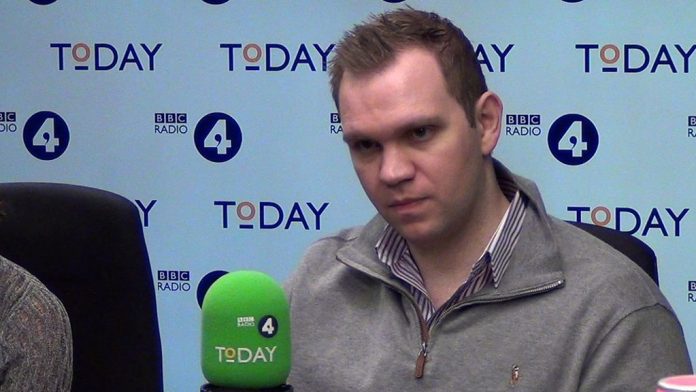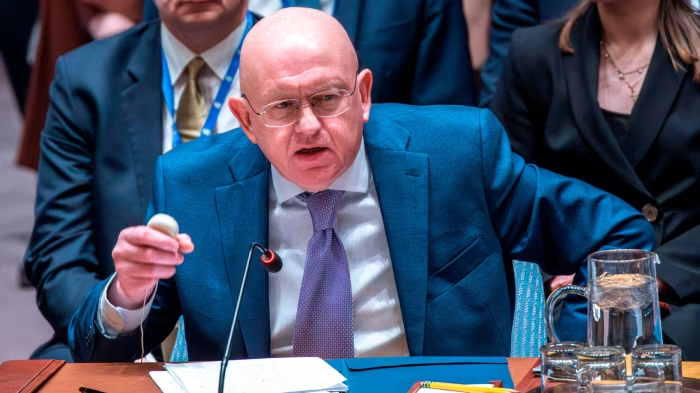Enormous amounts of Russia foreign trade now pass through the United Arab Emirates (UAE.) Yet it claims to be an ally of the West.
Let me say this from the outset, the UAE is no friend of mine. It was there that I was arrested in 2018 on baseless allegations that I was spying for my country, the UK, and there that I was tortured and sentenced to life imprisonment (an experience suffered by innumerable other foreigners and Emiratis alike.)
But while there is a personal element to my views, the UAE’s atrocious behavior extends far beyond my case and into other realms more important to the US and its democratic allies, especially since it affects Ukraine’s war of national survival.
The UAE supports Russia’s war of aggression against Ukraine, using techniques developed to help another pariah, the Iranian theocracy. Although it has traditionally seen Iran as a threat, it is also a major trading partner, and the UAE has become a significant outlet for sanctioned Iranian oil exports to China.
So what’s the evidence of UAE complicity? The strongest hint comes from the Financial Action Task Force (FATF), which monitors global money laundering and terrorist financing. It added the UAE to its gray list of enhanced monitoring last year, and while officials say it is making progress, it clearly still has a long way to go.
And the proof of that comes from the parade of senior US officials, from the vice president downwards, arriving to make clear continuing concerns regarding “evasion of US sanctions, particularly on Russia and Iran.” A UAE air company was sanctioned by the US in November for allegedly “facilitating the transfer” of Iranian drones to Russia. Another air firm was sanctioned in January by the US for moving personnel and equipment for the quasi-official Wagner mercenary group between its bloody operations in Africa. The US calls the group “a significant transnational criminal organization.”
It might seem extraordinary that UAE businesses are alleged to have such close links to two such visible elements of Russia’s bloody war in Ukraine, but this is far from the only concern.
More significant is the influx of Russian businesspeople, companies, and assets being used to operate beyond Western sanctions. Russian oligarchs’ yachts are tied up in the UAE and their private jets sit on the runways.
So what does the UAE say to all this? Official spokesmen explain that the UAE is neutral, that it simply wants peace for Ukraine, and that it is difficult to pick out the small number of Russians on Western sanctions lists. One analyst close to the UAE’s rulers told the New York Times that there was no issue as long as the country stuck to international law and people arrived “in a legitimate manner.” He asked: “What’s the big deal? I don’t see why the West would complain.”
I have analyzed UAE-Russian ties for over a decade. I have often been snubbed because I am perceived as someone with an axe to grind. Yet the problem is clear and serious.
An overwhelming portion of Russia’s international trade now transits the UAE. Fleets of oil tankers are managed through a Russian UAE subsidiary, other Russian-linked tankers are registered in the country, while Indian refineries are purchasing Russian oil in Emirati Dirhams, often through Russian-owned traders in the UAE.
It is tempting for the West to continue its policy of tolerating the UAE’s egregious behavior while seeking to persuade behind the scenes. Western leaders see reasons to hesitate. There are significant trade and military ties with the US; China offers deals without lectures; the Germans and others fly in to beg for LNG supply deals; the UK for UAE trade and investment; and the French to sell $18bn of advanced combat aircraft. The country is booming and its trading partners want a slice of the pie.
The UAE’s position is pretty clear. It will do things that annoy the West and undermine key Western policies for its own sense of independence and for profit. It is confident that it can walk the line between a notional friendship with the West and mild indifference to things that make them upset. Its booming, luxury cities and malls mean the Emirates can largely do as they please.
If that means irritating the West — breaking sanctions, arresting Western nationals, taking the murkily sourced billions of Russian oligarchs — well, the country’s rulers are willing to run the risk. After all, what could happen to dispel the good-time vibes? The economy grew by 7.6% last year and is expected to grow again by more than 4% this year.
Perhaps the UAE will indeed sail into a happier and brighter future, with no need for its Western allies. It’s certainly free as a sovereign state to help the world’s war-makers and rule-breakers and the G-7 countries have, for reasons of their own, showing a great deal of forbearance.
But it would be a brave politician to assume that will last forever. Or that painful secondary sanctions will never be imposed. I’m not alone in thinking they should be.












